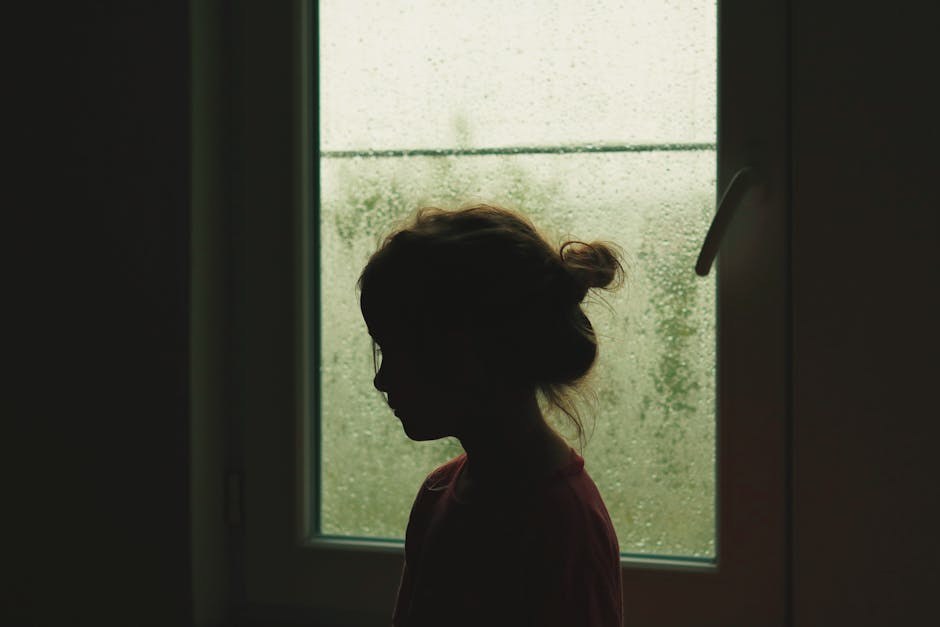Geography can stretch two hearts across maps, but closeness is ultimately made of everyday care, shared aims, and trust. A long distance relationship can be nourishing when both partners commit to the same horizon – showing up consistently, planning a path back to the same city, and choosing each other through uncertainty. It can also become exhausting when the distance simply exposes deeper misalignments. If you’ve been wondering whether your situation has reached that point, the reflections below can help you read the road signs with compassion, not panic.
Deciding Whether to End It
People often blame miles for problems that actually began long before anyone packed a suitcase. A long distance relationship succeeds when partners can delay gratification without resentment, improvise rituals of connection, and keep faith in the shared future when plans wobble. It falters when those capacities wear thin – or were never there to begin with. The goal here isn’t to tally up failures; it’s to notice patterns that consistently drain you and to decide, with care, whether the relationship you have is the relationship you want.
Use the signals below as a practical lens, not a verdict. If several of them feel true most of the time, your long distance relationship may be telling you it needs to end so both of you can breathe again.

Signals That Suggest It’s Time to Step Away
-
Plans Disappear, and the Future Feels Blank
Hope lives on the calendar. In the early days, you circled dates for the next visit, sketched out how long you’d keep commuting, and daydreamed about neighborhoods you might share. When the plans fade – no flights booked, no realistic end date, no shared timeline – the energy of a long distance relationship starts to leak. Without a path to reunite, love becomes a waiting room with no departing flights.
Ask yourself: are you both actively working toward the same finish line, or are you hitting snooze on decisions because they’re uncomfortable? If the latter keeps repeating, your long distance relationship may be idling rather than moving forward.
-
Communication Thins Out and Stays Surface-Level
Early on, calls sprawled until the battery died – stories, feelings, mundane details that made you feel present in each other’s day. Over time, it’s normal for the pace to settle. What’s telling is when conversations shrink into perfunctory check-ins, or silence stretches for days without explanation. If neither of you reaches for more depth, it usually means there isn’t more to reach for.

Technology makes contact easy; desire makes it meaningful. When messages feel like chores and video calls keep getting postponed, your long distance relationship is signaling fatigue rather than intimacy.
-
Suspicion Eats the Quiet Moments
Trust is the bridge across the miles – without it, every gap in the day becomes a cliff edge. If you’re refreshing chat apps, parsing time stamps, or scanning social feeds for clues, you’re not nurturing connection; you’re monitoring it. Even if nothing concrete is wrong, the constant checking points to a deeper fracture: you don’t feel secure.
It’s fair to ask for reassurance. It’s also fair to notice when reassurance never lands. If your long distance relationship requires detective work to feel okay, it may be asking for more emotional labor than it gives back.

-
Reunions Feel Awkward Instead of Intimate
Distance can add spark – anticipation, tenderness, the thrill of finally sharing a room again. But if every visit feels like two polite strangers sharing an itinerary, something essential has shifted. Sex by itself doesn’t fix that absence; intimacy is the warmth before, during, and after the lights go out.
Notice how you feel the morning after: comfortable and close, or oddly alone beside someone you love? When touch doesn’t restore closeness, your long distance relationship may be mirroring an emotional gap, not just a geographic one.
-
Money and Time Drift Toward Everything But Each Other
Priorities leave a paper trail – bank statements, calendars, energy levels. In the beginning, you saved for tickets and carved out weekends even when work was hectic. If you now find yourself splurging on distractions while postponing travel “until later,” your values might have shifted. That doesn’t make you selfish; it makes you honest.
Resources show commitment. When you’d rather invest in anything else than the next visit, your long distance relationship may be lower on your list than you want to admit.
-
Jealousy of a Life You’re Not In
Healthy partners cheer each other on – friends made, hobbies tried, communities built. In distance, those wins can sting because you’re not there to share them. If joy curdles into resentment when your partner has a good time without you, the issue isn’t their calendar; it’s the fear that their life is expanding away from yours.
Jealousy is a compass: it points to what you’re afraid to lose. If that fear keeps turning into criticism or guilt-tripping, your long distance relationship will feel like a tug-of-war instead of a team effort.
-
Endless Small Talk, No Real Talk
There’s a place for memes and weather updates. But when every call avoids the big topics – boundaries, expectations, conflict, the plan to eventually live together – silence becomes its own message. People often tiptoe to avoid making the distance feel heavier, yet avoidance is what adds the weight.
If you are both dodging conversations that would define the relationship, your long distance relationship is running on politeness rather than purpose.
-
Support Feels One-Sided
Across distance, empathy must go the extra mile. If your updates keep becoming a stage for your partner’s monologues, or your needs are minimized as “not a big deal,” the imbalance adds up. Feeling heard isn’t a luxury – it is the oxygen the relationship breathes.
When constructive feedback is met with defensiveness, and the dynamic always tilts toward their stress and never yours, your long distance relationship turns into caregiving without care in return.
-
Idealization and Projection Replace Reality
It’s easy to fall in love with a version of someone curated through screens – the best angles, the brightest stories. But love matures when quirks and limits are seen up close. If your partner treats you like a fantasy – or blames you for feelings you didn’t cause – the connection rests on projection, not presence.
Relationships can survive a lot; they cannot thrive on make-believe. If it feels like you’re managing an image instead of being yourself, your long distance relationship asks you to play a role rather than be a person.
-
Romance Stops Showing Up in Small Ways
Grand gestures are lovely – surprise visits, elaborate plans – but steadiness is more romantic than spectacle. A handwritten note, a shared playlist, a book with passages bookmarked “for you”: these are the small stitches that keep fabric from fraying. When those gestures vanish and affection turns generic, the emotional color fades.
Notice effort, not extravagance. If there’s no intentional warmth left between the calls, your long distance relationship may have slipped into autopilot.
-
Online Intimacy Vanishes Without Conversation
For many couples, physical chemistry has a digital counterpart – flirtation by text, late-night phone intimacy, playful video banter. If that part of your connection disappears without discussion, it’s rarely random. Desire can ebb and flow, of course, but unspoken withdrawal often signals growing distance of another kind.
If attempts to revive that channel are met with avoidance instead of care, your long distance relationship may be nearing its natural conclusion.
-
Betrayal Breaks the Contract
Cheating isn’t just a behavior; it’s a statement – that the agreements you made together no longer carry weight for the person who broke them. Whether the betrayal is emotional, physical, or both, secrecy corrodes trust at the foundation. You can rebuild after a rupture, but only if both people are transparent, accountable, and genuinely willing to do the work.
If honesty is absent and the truth has to be dragged into daylight, your long distance relationship is asking you to protect your self-respect first.
-
Pessimism Becomes the Default Forecast
Every couple hits rough weather. What matters is the climate – the story you tell yourselves about what you can overcome together. If dread accompanies each call, if you’re constantly bracing for disappointment, or if comparisons to other couples keep reinforcing doom, the narrative itself is wearing you down.
Realism is healthy; fatalism is heavy. When optimism is missing for weeks on end, your long distance relationship no longer provides hope – it siphons it.
How to Interpret the Patterns
One sign on its own may not mean much; life has seasons. But when several of these themes repeat, that’s a pattern. Before making a choice, try a focused experiment: schedule an honest conversation and name what you need with specificity. Clarity isn’t an accusation – it’s a lighthouse. If both of you respond with empathy and action, there may be a new chapter to write. If the response is blame, indifference, or delay, the message is also clear.
- Define the next concrete milestone you both accept – a visit date, a decision window, or a timeline for closing the distance.
- Agree on communication rhythms that feel sustainable rather than performative.
- Share how suspicion shows up and what would help rebuild trust in your long distance relationship.
- Notice whether follow-through matches the promises – consistency is the proof of care.
Leaving Without Punishing Yourself
Choosing to end a relationship doesn’t mean it failed – it means it taught you what to seek and what to decline. Some connections are right for a chapter and not for the whole book. If you decide to step away, aim for respect: speak plainly, avoid scorekeeping, and offer closure without reopening the wound. Love can be real and not be forever; both truths can stand side by side.
Most of all, remember this: the purpose of a long distance relationship is the same as any other – to nurture two people, not deplete them. If staying requires you to shrink, you are allowed to choose growth instead. The miles between you do not measure the value of what you shared; they only measure the map. Your compass is how you feel, what you need, and whether the path still points you toward each other.